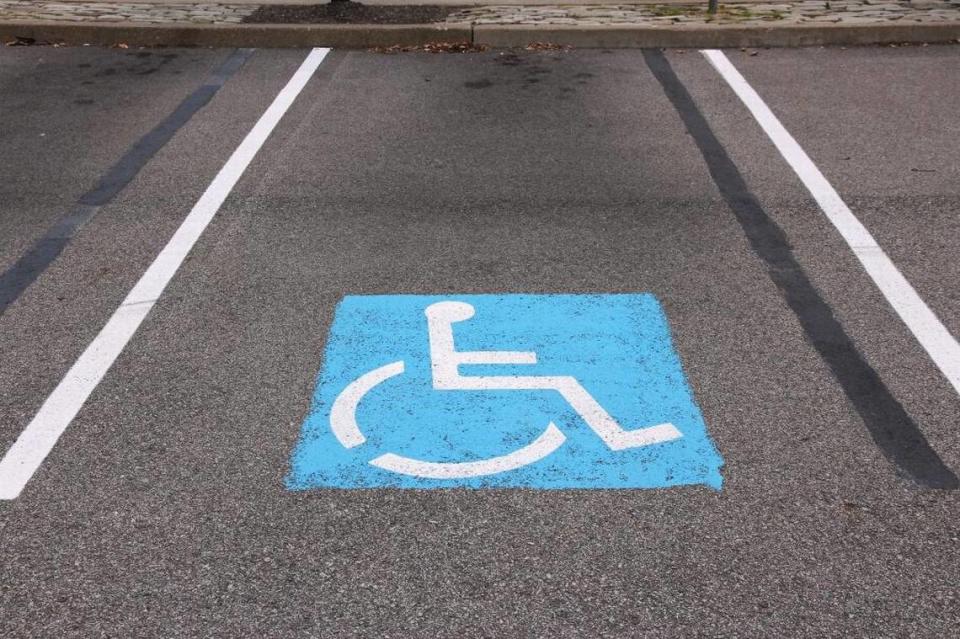Tri-Cities drivers report handicap parking spaces used illegally. Here are law and fines
Have you ever lived or worked somewhere with assigned parking spots? No matter how good or bad your designated spot is, it bothers you all the same when someone else uses it. That parking spot is for you, so you should be able to park in it, right?
This is just a fraction of what it feels like to be disabled and find handicap parking spaces fully in use by those without placards. It’s their spot, so they should be able to park in it. On top of that, it might be incredibly physically and mentally demanding, or even damaging, to walk from a farther parking spot.
What are the rules in Tri-Cities on who can and can’t use a handicap parking spot? And how much can you be fined if you use a handicapped spot illegally?
Tri-Cities handicap parking
Local disabled folks have been posting online about how commonly their parking spots are taken in Tri-Cities. To lose their spot to someone who would have been only slightly inconvenienced by walkin is incredibly frustrating, as shown on forums and social media outlets like Nextdoor.
One couple sparked a heated discussion on the app in August when they asked if law enforcement is allowed to use the spaces. They pointed out how few spots are available at a local health care center, yet have been unable to use them when police officers park there. The responses varied, but ultimately led to greater discussion about handicap space availability.
“The whole handicapped parking space thing is so abused by people who won’t really need to park in that space or they borrow a placard from somebody,” stated one man in the comments. “It’s just ridiculous.”

So who can park there and when? What are the rules around this?
WA handicap parking space laws
Handicap parking in Washington is regulated through the state Department of Licensing. Applications are filled out by individuals and their health care providers to determine if they meet the criteria for handicap parking.
There are two kinds of parking privileges, temporary and permanent. Those approved for temporary privilege will receive one or two placards at no cost, good for one year, after which a new application must be completed.
Those approved for permanent privilege may receive a placard and a set of license plates, or a disabled parking tab for specialty plates. These are all valid for five years, after which a new application must be completed.
Only people who have completed this process and been approved for such parking should use handicap spaces.
According to the application, health care providers must identify an individual with one of the qualifying conditions:
To walk 200 feet, needs assistive device or to stop and rest
Cannot walk, uses wheelchair
Severely limited walking due to arthritic, neurological or orthopedic condition
Uses portable oxygen
Walking restricted by lung disease
Class III or IV impairment by cardiovascular disease
Acute sensitivity to auto emissions impacting ability to walk
Legally blind with limited mobility
Restricted by porphyria
Any health care provider who knowingly lies on the application is guilty of a gross misdemeanor and could face a fine of up to $5,000 and up to a year in jail, on top of penalties within the health care system.
There are various fines associated with abusing handicap parking privileges:
$250 for using a handicap parking space unlawfully
$250 for owning or using an ID card, placard, license or tab unlawfully
$200 for blocking the access space next to a handicap parking space
After the first infraction, there is a monetary fine and 40-hour community restitution period.
Who can use handicap spaces?
Once someone is approved for handicap parking, they will also receive an identification card. It is the individual’s responsibility to carry this on them whenever they use handicap spaces, in case law enforcement asks to verify their status.
They are also responsible for hanging the placard on the windshield mirror post, or dashboard if there is no post, when leaving their vehicle in a handicap space.
The Northwest ADA Center includes another responsibility of those using this parking privilege: reporting abuse. People without placards or identification cards can be reported to the local police.
Remember that not all disabilities are visible. Several of the listed qualifying conditions are not something that can be detected by strangers at a distance, so don’t assume someone is illegally using the space just because they “don’t look handicapped.”

